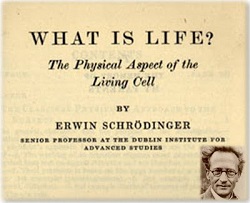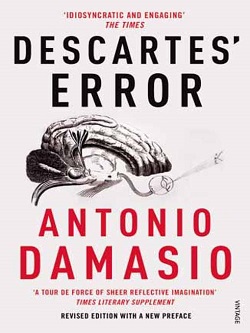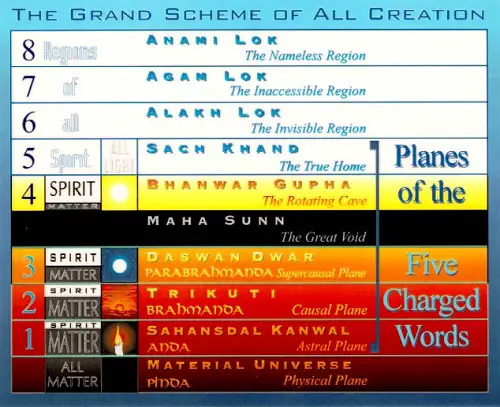|
TRANSLATE THIS ARTICLE
Integral World: Exploring Theories of Everything
An independent forum for a critical discussion of the integral philosophy of Ken Wilber
 David Christopher Lane, Ph.D.
Professor of Philosophy, Mt. San Antonio College Lecturer in Religious Studies, California State University, Long Beach Author of Exposing Cults: When the Skeptical Mind Confronts the Mystical (New York and London: Garland Publishers, 1994) and The Radhasoami Tradition: A Critical History of Guru Succession (New York and London: Garland Publishers, 1992). David Christopher Lane, Ph.D.
Professor of Philosophy, Mt. San Antonio College Lecturer in Religious Studies, California State University, Long Beach Author of Exposing Cults: When the Skeptical Mind Confronts the Mystical (New York and London: Garland Publishers, 1994) and The Radhasoami Tradition: A Critical History of Guru Succession (New York and London: Garland Publishers, 1992).SEE MORE ESSAYS WRITTEN BY DAVID LANE On reductionismDavid LaneIt seems to me that we often get caught up in a tripartite dilemma—one which is echoed in the following intellectual triangle:
Take a book, actually any book, but in this example we will simply limit it to that wonderful little text published by Cambridge University Press, What is Life? by Erwin Schrodinger. Not very long (my edition is only 96 pages), but sufficient to get the point across.
Thus if we want to avoid "cheap" reductionism, we also want to avoid "expensive" inflationism.
Now if I wanted to know the meaning of the book, if I wanted to "apprehend" its contents, I would read the entire tome. So far, so good. But let's say that I wanted to discover what ultimately constituted the book. That is, I wanted to know what the common underlying symbol system was that actually comprised the text. In this type of quest (the pun is intentional), I would reduce the book down to its chapter divisions, chapter divisions down to pages, pages down to paragraphs, paragraphs down to sentences, sentences down to words, and, finally, words down to letters. Letters, individual (but only 26 variations in our alphabet) symbols would be the fundamental unit by which information is encoded. But let us imagine that I only read What is Life? in terms of its letters, not the words they form, or the sentences they create, or the paragraphs they construct, or the pages they comprise ... What then? Would I "understand" the meaning of the book if I simply limited my reading to the symbol units themselves? The answer is fairly obvious: no. 
Why? Because the letters "a" or "b" or "z" do not, indeed cannot, convey the meaning as isolated units. They begin to form meaning when they conjoin and develop a larger complex, a larger construction. Okay, so now we understand something called "pretext." That unit which is rudimentary to the book, but which is not yet readable as a text. Important sidebar: as the latest studies in reading have shown, "hooked on phonics" (Michael Landon's greatest legacy?) or the understanding of the sounds that constitute words is very helpful to students for later reading and comprehension. Indeed, as good as "wholistic" reading may be, phonics is even more helpful at a fundamental level. The reason why is pretty obvious: the more one grounds herself in "pre-text" the more secure the formation will be when one moves "up" to "textual understanding." Why? Because there will be less con-fusion of word or sentence formation. Pretext is fundamental. But now let us imagine that we have understood pretext (symbols, or the alphabet in our example) and text (the larger complex which words and sentences and paragraphs develop). Is that all that is necessary to "comprehend" (I am consciously using a different word than "apprehend" at this stage) Schrodinger's book, What is Life? Well, yes and no. Yes, because clearly I can get a fairly decent sense of what our quantum theorist is trying to convey. No, because there are certain things "around" or "beyond" the text which the book cannot convey, but which strangely enough is demanded for better comprehension. That missing something is not pretext, or text, but context. Context can range from the very simple: the paper quality, the binding, the typography, the smell of the book (anyone who has read books published in India will immediately know what I am talking about) to the very complex: What year was the book published? What prior knowledge of math, of physics, of astronomy, of biology is necessary to better engage the text? Moreover, what is my mood? What country am I in? What religious/scientific beliefs do I bring to the text? Is it nighttime? Is the T.V. on? Silly questions? Not really, since this larger infusing environment—ranging from the rudimentary to the baneful to the sophisticated—plays an important factor in any reading of any book at any time. Context is the larger arena by which any text, formed by any pretext, is understood.
And, as such, a pretext can "evolve" itself into a text which in turn “evolves" itself into a context ... So that a context in a different situation can become the pretext to a new text which itself is housed by a new context ... And so on and so on. Or, as Ken Wilber would have it, "holons, holons, and more holons." Each holon, as Wilber would suggest, comprised of holonic parts, but which itself acts a holonic part (I know it sounds oxymoronic but that's the point) of some larger holon. Atoms have parts (electrons and protons, for instance), but an atom is "part" of something larger (molecules). Molecules have parts (atoms of varying weights), but a molecule is "part" of something larger (cells). Cells have parts (molecular bonding), but a cell is "part" of something larger (a simple organism). Etc. Which leads to brains have parts (neurons, axions, synapses....), but a brain is "part" of something larger (the human body). The human body has parts (the brain, the heart, the liver....), but the human body is "part" of something larger (family/environment) ... and so on. Okay, so who cares? Well, it seems as if we are always struggling with this dilemma: reduce or inflate? Pretext or context? What Wilber suggests, though I don't think he is aware of how thoroughly materialistic his system can be, is that science tends towards reductionism, towards Occam's razor, towards Churchland's intertheoretic explanations, and that is its great strength ... It tends to explain things more simply ... and by more simply we mean more "fundamentally." For this reason it usually kicks butt on any or all "inflated" theories (context which seems divorced from pretext?). But reductionism can in fact "go too far." And what I mean by "too far" is that it can actually become anti-informational when such reductionism to echo the words of Dennett becomes "cheap." What is cheap reductionism? Let's go back to our book, What is Life? Remember that we can reduce the text to a series of letters, and such reductionism would be very helpful at first. Indeed, it would give us a tremendous grasp of what we could or perhaps could not do with such a symbol system. But let's imagine that I wanted to "reduce" even further. I find that the letters are made of little lines, so that a "W" looks like two "V's (VV) conjoined. We can even go farther and see that all letters in print are made of tiny molecules which are themselves made up of atoms, and the atoms are (eventually) made of quarks ... and quarks? Well, super-strings in nth-dimension are vibrating at a frequency below Planck's constant, which is not at any perceptive level..... See, we have gone too far. It is nice to say that words are nothing more than the congealed results of trapped electrons but it adds very little in terms of instrumental or pivotal information. To be sure, it helps to understand other things about our universe, but given the complexity of letters it does not add to our present domain-related discussion. We have made a classic boundary skip, category collapse, and we have indulged in "cheap" (not very worthwhile) reductionism. Yet, this does not mean that reductionism is bad, it just means that reductionism is quite useful in the right domain ... Reduce too much and we lose. Don't reduce and we inflate too much. Having said all this, it is obvious that the direction of science must always be, fundamentally, in the path of "reducing" as far as it can go while remaining useful and informational. Let us see how this works across disciplines: physics (looks to math, perhaps our most precise and accurate "human" language); chemistry (looks to physics, especially quantum mechanics—just see the work of Linus Pauling); biology, especially molecular biology (looks to chemistry; just think of Watson and Crick and the double helix model of DNA); psychology (looks, or perhaps they should! to neuroscience, the study of the brain.) Why? Because the greatest progress in psychology has not come from Freud or Jung.... It has come from those pioneers who have grounded their studies in evolutionary brain science....  Edward O. Wilson Just think to yourself when you get a headache: should I call 1-900-shaman or should I take an Excedrin extra strength? I would have mentioned Prozac, but I was thinking about cross-posting this to alt.religion.scientology!); sociology (looks bad, but if it is to have a future, it should tend towards biology/psychology/evolution). I know nobody likes Sociobiology (its "new" name is evolutionary psychology—cool, now we can do what E.O. Wilson has been talking about for some twenty years). A sociology grounded in evolutionary theory may actually come up with some revolutionary and cross-cultural predictions. Get rid of Marx, but not his reductionistic spirit, and hitch it to evolution and sociology may go somewhere. Now each of these disciplines "succeeds" when they discover their basic alphabet, their basic pretext. That has to be done and is the key to any further scientific progress. Below is a very simplistic look at various pretext/alphabets: physics: at the subatomic level it is clearly quantum mechanics, and its sophisticated reworking Q.E.D., which is so fudging precise that no theory rivals it in terms of accuracy. Molecular biology: DNA as everyone knows is the blueprint for all life. Evolutionary biology: natural selection. Darwin's contribution, as Dennett so rightly points out, is probably the single greatest thought given to man. But let's go back to What is Life? Can I get a Q.E.D. reading of it? Can I get a DNA reading of it? Can I get a natural selection reading of it? Yea, but it is not going to be as useful or as informative as understanding the English language at its own level. So let's jump domains and cut to the chase: Metaphors coming (literalists beware!) 1. The brain is a text 2. Neurons are its subtext 3. The human body (thanks to Descartes' Error for informing us here) is the context. Now I want to understand "me"! Best to start with the brain's alphabet(neuroscience 101); Then look at the brain's architecture and how the neural symphony comes together And then look at the larger human anatomy and see how all the various "beyond" brain parts work together. Is that enough? No, because just as neurons have constituent parts, so does the human body have a much larger context or field of interplay. That larger context or infusing environment always arises when the pretext and text have reached their terminus, their limit.... Thus if we want to avoid "cheap" reductionism, we also want to avoid "expensive" inflationism (think of "fake" or "monopoly" money). Why did I go on at length about pretext, text, context (alphabets/ books/ purviews)? Because in trying to understand consciousness (soul?) we usually run in two directions: deflation—hey, Crick's right, I am nothing more than a sophisticated neural net; or, inflation—hey, Wilber's right, I am Pure Spirit. In the middle of such opposing sides is relation: the connection between these two views (such as, hey, all I know is that I "feel" more than the body, except in those cases when I have a really bad headache or toothache.). What is fairly obvious in understanding a book (pretext: alphabet/phonics) text: words/sentences/paragraphs/chapters; context: when was this book written? where was it published? what mood am I in when I read it?) can also be applied via analogy (literalists beware!) to consciousness: pretext: brain/neural net/connectionist/PDP; text: "I" consciousness, personality, "the lived through sense of me" context: in what city does this "I" live; what relationship do I have to my family, to my nation, to my religion, etc. Given this simple scenario it becomes obvious that we can reduce consciousness down to its pretext (the brain) and we would be only partially correct. We would not—perhaps could not—understand the "qualia"—the phenomenology of my own lived through experiences (John Searle's "first person") if we merely stayed at the level of neurons. No doubt, we would understand a tremendous amount (and my biases lean, I should point out, with the Churchlands' for intertheoretic reductions whenever possible), but something would be lost in the reductive translation. We need text (read: the personality at its own level, at its own understanding, at its own self-reflections) 
Moreover, there is something about consciousness that is not merely the brain, but also the body entity (as Descartes' Error strongly suggests). Additionally, consciousness—as such—arises within a larger field, that of family relations, societal relations, ecological niches, etc. It is this larger field which informs and shapes much of what we know about our consciousness and personality. This larger "context" is essential, especially when one considers the vast differences in cultures throughout time and place on this planet. The above tripartite schema is clear enough and I would venture to guess that most would not disagree with it. Where we run into difficulty is when we start to think of consciousness as "transcending" physicality. Well, to be sure, there is a transcendence of sorts when the alphabet turns into words and words into sentences and so on. But it is not divorced from the prior structure. Indeed, each higher level is situated upon—sits upon—that former and under girding pretext. Okay, the Great Gatsby transcends a mere random collection of letters (there is a point, there is meaning, there is character development), but take out those very letters at any stage and the entire superstructure of the "novel" collapses. As Wilber would point out (or any good physicist for that matter), the alphabet is more "fundamental" than sentences, though sentences are more significant (convey more meaning, have more depth). So at each stage of explanation we are confronted with this situation: what is the pretext? (alphabet, the rudimentary symbols by which we comprise larger sets. Hint: this can be applied to anything: Atoms? Electrons/nucleus. Molecules? Atoms. Living Cells? DNA ... and so on) What is the text? (This is actually quite arbitrary and it depends where and when we want to measure something, but once staked out it becomes the rallying point for pretext and context) what is the context? (In what larger field does the alphabet, the DNA, the atoms, the quarks, etc., arise?)
But here's the catch: none of these larger texts or contexts is divorced or separated from its predecessors.
But here's the catch: none of these larger texts or contexts is divorced or separated from its predecessors. Indeed, in terms of genealogy, it is impossible to have a book, as such, without a rudimentary symbol system. It is impossible to have molecules without atoms. It is impossible to have a brain without neurons (A note of caution to my A.I. friends: this is merely an analogy; I am not denying that silicon chips could not in theory replace neuronal components .... Even then, there is still a pretext—sand!). So when one speaks of consciousness without a brain, or beyond the body, or without physicality, it is naturally criticized by those conversant with neurology. They don't buy it, since they know that by understanding the pretext of the brain they can actually change how the brain functions. They know the code. And there is nothing to suggest that consciousness which arises in the brain can somehow fly away from the body or code without any restraint whatsoever. But this is exactly the point about any physical or mental or spiritual thing—things arise from other things and those very things arise in fields of emergence. Yet, there is no absolute separation from the quantity of one thing into the quantity of another (or new thing). To put it to consciousness, we have the following: neurons: subset brain: set personality: post-set or personality: preset society: set ecology/environment: post-set all the way down, as Wilber says, holons all the way up. Yet, Wilber makes one huge "sky-hook" mistake (thanks Daniel Dennett) when he argues that Spirit is the basis of all matter. Wilber wants us to believe that Spirit is not based upon matter, but the reverse. This is where he makes his leap and where any materialist worth his salt is going to have huge difficulties with Wilber. What Wilber should concede (he doesn't) is that he does not know what Spirit is ... (I don't either). Why? Because what Wilber really means by Spirit is the Context of every pretext/text/context.... That is the Infinity in which everything arises. Well, I don't know what that is; Wilber does not know what that is; I would imagine nobody "knows" what that is. What we do know, partially, are limited frames of reference, and, as such, we can pontificate upon them—from quarks to atoms to molecules to cells to people to societies to nations. But let's not go too far. There may be an astral plane, but we have no evidence—at this stage—to comprehend it. We only have limited symbols which may point to it. Yet, do we admit to this contextual impasse? Do we, in fact, say with humility, "there might be?" Yes and No.  When one reads Wilber or anybody (including almost all of my early writings) you get the impression that he/she/it has a lock on the ultimate truths. Woe, we just found out about DNA ... and that only explains the alphabet of life processes. Before the 50s we didn't know. So can we then take a huge leap from DNA to the fabulous inner regions of Sahans-dal-Kanwal? We can, but my hunch is that we are merely "infusing" contexts that we do not as of yet know exist. And by doing such we "confuse" ourselves unnecessarily. Dennett would say we are going for sky hooks, not cranes.... But it is cranes all the way up that produce the higher orders, the complex systems ... Not the other way around. What meditation may indicate is a higher context but that very higher context will, by necessity, be grounded in the text that precedes it. What is that? The brain. So there is no way around this—from a bottom up perspective—but to admit that everything is higher order materialism. I could say "spirit" but that would incline itself to meaningless gibberish. When I say "matter is all there is," it tends towards reductionism and thus is more locatable in terms of its pretexts. It does not mean, of course, that I "know" what matter ultimately is. I don't. What it suggests is that we ground our speculations, as always, with the rudimentary tools that are available. Wilber and others with a Consciousness bent (read: Big Context takes Over ALL) will heartily disagree with my slant, thinking that I have sold my soul in exchange for quantum mechanics and neurology and evolution. No, I have come to grips with the fact that whatever my soul may be is grounded in the pretexts/texts/contexts of everything that arises within my body and without it. Thus I think we will understand a lot more of what we mean by "soul" if we start with what we mean by "body,” by "brain," etc. Now if there is indeed a context which transcends this frame of reference, this waking state, then having a humble approach to it, I would argue, will be even better. We will be more open and skeptical. Open to the possibility; skeptical of misguided confusions of pretext and context. What we get instead with Wilberian type thinking is actually a bit of hubris and a whole lot of arrogance (well, he is on the seventh plane.... she is on the eighth plane.... and Free Willy is stuck in the bowels of the astral). Think for a second. How many times have we engaged in arguments over inner level attainments from the comfort of our own chairs? And all the while most of cannot even explain—in terms of physiology—how we grow hair on our arms. I find it completely amazing that we cannot define this universe (which is the emerging context by which we can empirically understand our lives), but geez we most definitely know the ins and out of the astral plane and who resides there. Materialism is multi-dimensional. The reason it is probably nicer to use that term (versus spirit) is that it tends towards reductionism. It tends towards looking to its primary alphabet. By positing a materialist position, we look first for the cranes; by positing a spiritualist position, we look first for the sky-hooks. Or in the terminology I have been using: by saying matter first, we look for pretext; by saying spirit first, we look for super-context (usually divorced from any empirical referent) Now it is correct to look for both pretext and context, but both arise in a relationship in the here and now. Super-contexts (or SPIRIT) is usually too far up the hierarchy to mean anything useful. I could say anything to posit a super-context (Elvis, Sugmad, Anami Purush, God, Jesus, Gumby, etc.), but it would given our grounded lives here mean zip. Why zip? Because it can stand for anything. Yet matter is the same thing, one might counter? Yes, but it has one advantage: it looks to its predecessors, to its genealogical parents, to its alphabet, to its cranes, to its roots ... And when such is lacking, then and only then can it make the slow climb up. Spirit—we could actually say Infinity instead—is never definable because it is by definition never ascertainable or limited. Matter is about limits or at the least our understanding of how energy/matter interacts at a certain level (our text?). But matter is not something flat, not something grey. It is absolutely beyond my fullest comprehension. And yet, as Einstein rightly said (he was agnostic and a materialist) “the most incomprehensible thing about the universe is that it is comprehensible.” Thus we may not ultimately know, but we know a little and that little grows by looking to its roots.
|